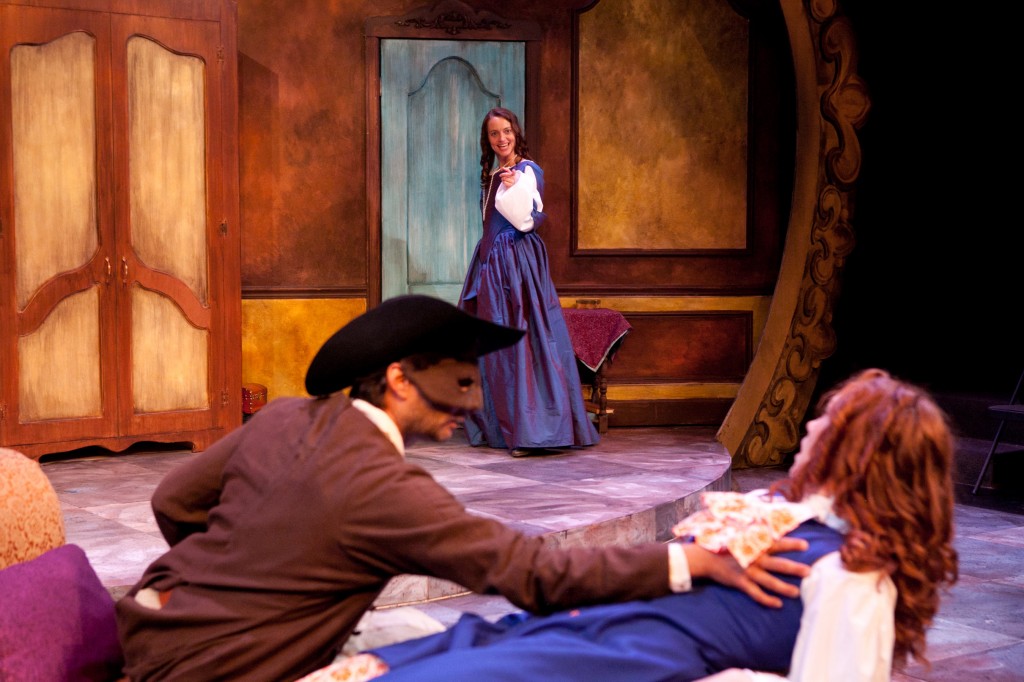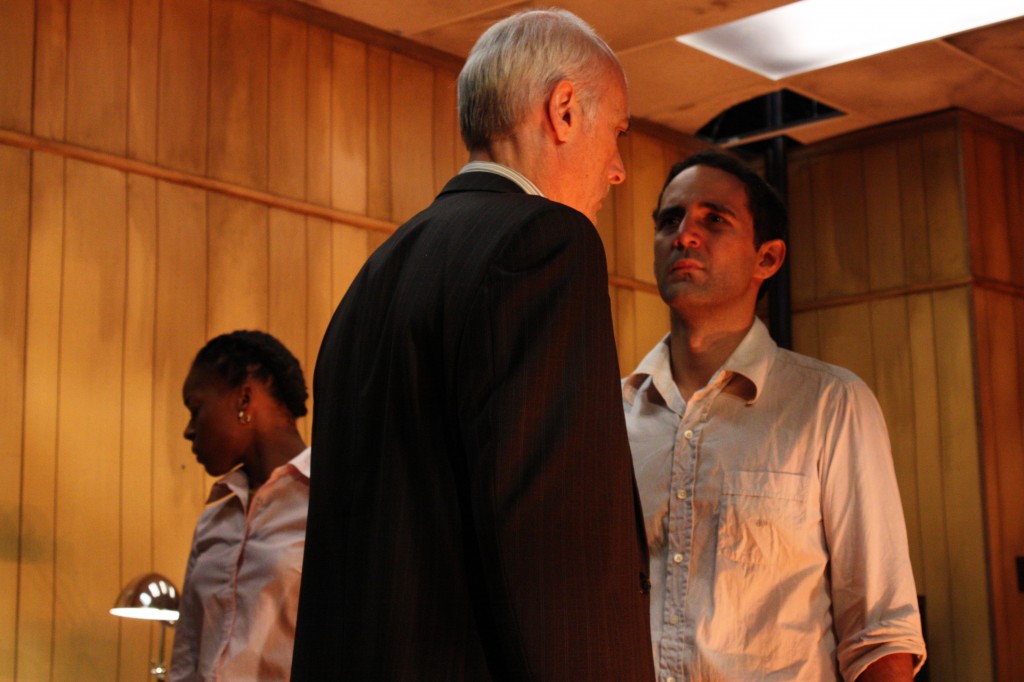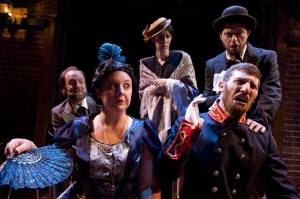
Emily Hecht as Alice and Brett Johnson as Charlie in T: An MBTA Musical. Plays June 30-July 9 at ImprovBoston, 40 Prospect Street in Cambridge. Tix/Info: 617-576-1253 or improvboston.com. Photo by Ben Snitkoff
T: An MBTA Musical, music and lyrics by Melissa Carubia, book by John Michael Manship, ImprovBoston, 6/30/11-7/9/11. http://www.improvboston.com/shows/musical?ref=slide. Mature Themes. **Warning: should not be viewed by kids, pets, bikes, and particularly tourists and freshmen (we need people to keep coming to Boston, and they don’t need to know the truth until it’s too late!)
Reviewed by Becca Kidwell
LISTEN TO ORIGINAL MUSIC EXCERPTS
Most people have been there at one time or another: the T (translation for non-Bostonians–the subway). For those who know it is a frustrating experience that makes you want to hop in your car and drive to the country or Rhode Island. Delays, fires, sports fans, and vomit are all familiar sights on that are highlighted in the hilarious new musical at ImprovBoston–T: An MBTA Musical. If interactive/improvisational theatre scares you, don’t worry: this is a scripted show. This show makes you laugh until it hurts; then, you are not so angry at the train on the way back–until the train stands still for twenty minutes because of a fire on the rail. Continue reading →
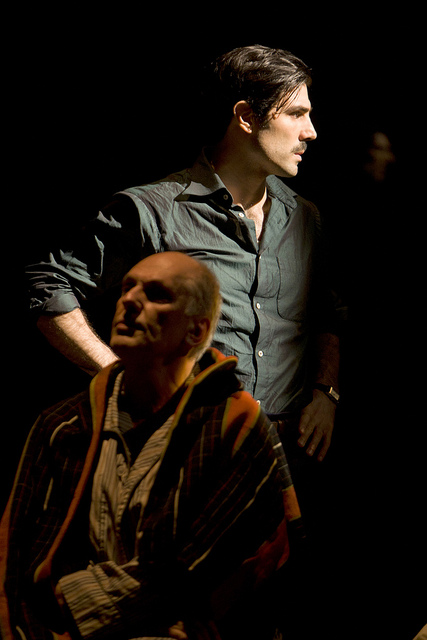
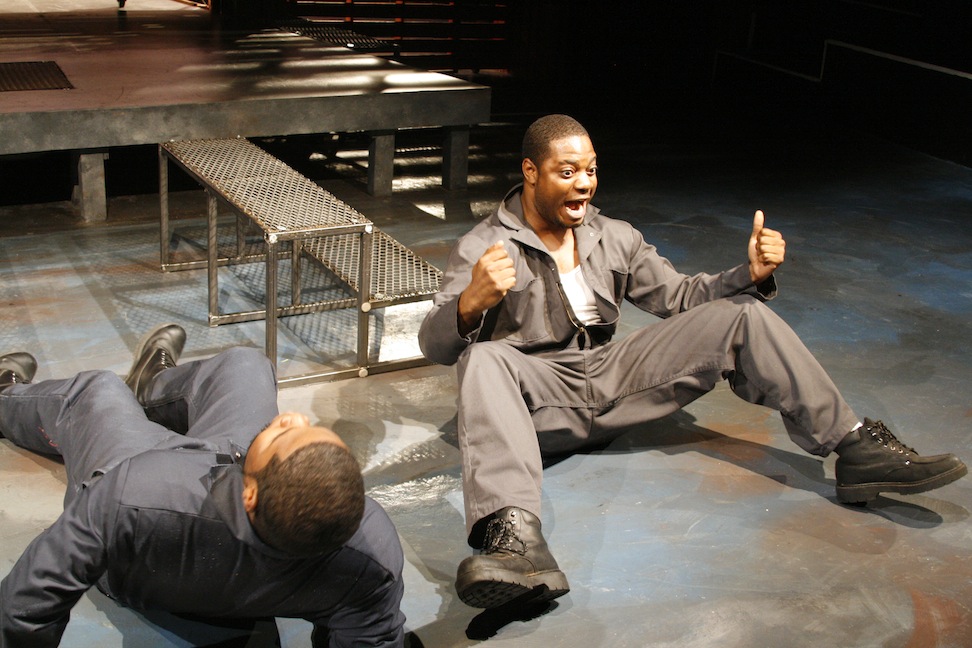
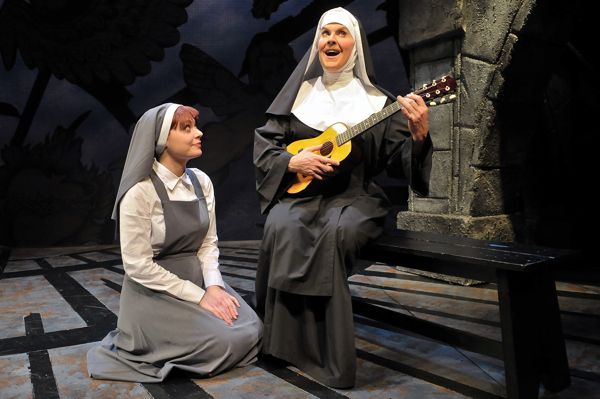
 The Phantom Tollbooth, based on the book by Norman Juster, book by Norman Juster and Sheldon Harnick, lyrics by Sheldon Harnick, music by Arnold Black,
The Phantom Tollbooth, based on the book by Norman Juster, book by Norman Juster and Sheldon Harnick, lyrics by Sheldon Harnick, music by Arnold Black, 